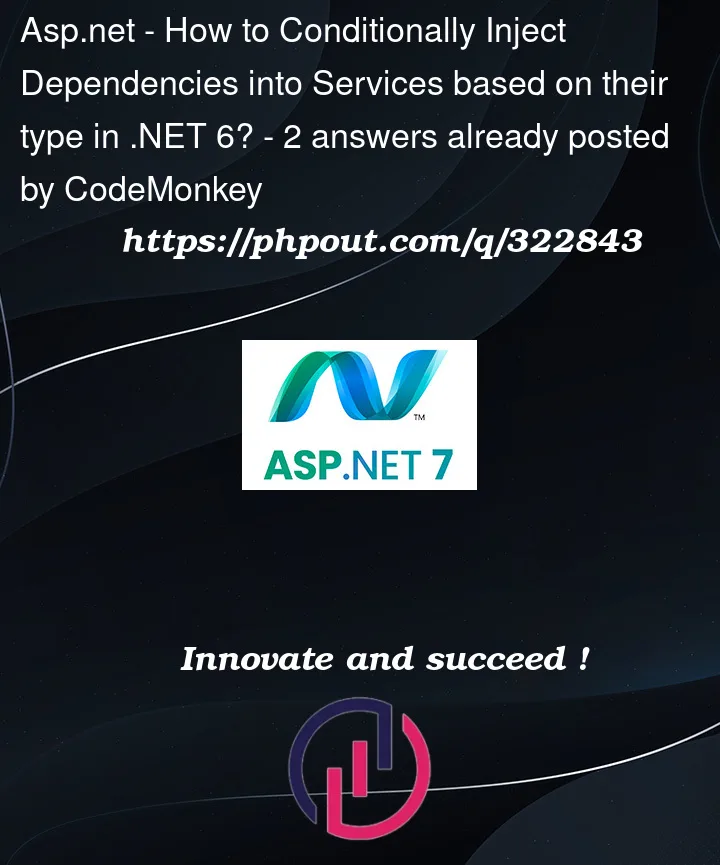I got a C# gRPC sln with .NET 6 (not sure if the fact that its grpc matters for this question) with 2 different C# classes which are implemeting the logic of 2 different grpc services which derives from 2 different services defined in 2 different proto files:
public class MyServiceV2 : My_Service.My_ServiceBase
public class MyServiceV3 : My_Service_V3.My_Service_V3Base
These 2 services run side by side at the same time and registered their endpoint.
Both these classes have a constructor with ClassA as a parameter.
There are also derived classes from ClassA:
public class ClassAV2 : ClassA
public class ClassAV3 : ClassA
How can I make the DI in the startup file such that MyServiceV2 will be injected with ClassAV2 in the constructor for the ClassA parameter, while MyServiceV3 will be injected with ClassAV3?
Note: The services can’t have the parameter as the actual class since there is a different behavior for prod env and non prod env: in prod env the it should be as I wrote above, but for non prod env the parameter should be injected with the base ClassA only. I know how to tell between prod and non prod env, just not how to inject to a specific service when in prod env.
Adding pseudo code to what I want to achieve:
public void ConfigureServices(IServiceCollection services)
{
if(InProduction()) //already got this
{
services.FindService(typeof(MyServiceV2)).AddSingleton<ClassA, ClassAV2>();
services.FindService(typeof(MyServiceV3)).AddSingleton<ClassA, ClassAV3>();
}
else
{
services.AddSingleton<ClassA>();
}
}




2
Answers
What I eventually did was using a factory.
I then changed the services themselves to have
MyFactoryhas a parameter to their constructor, made a DI for the factory in the startup file, and then simply invoked the factory from the constructor of the service itselfThis might do the trick for you: